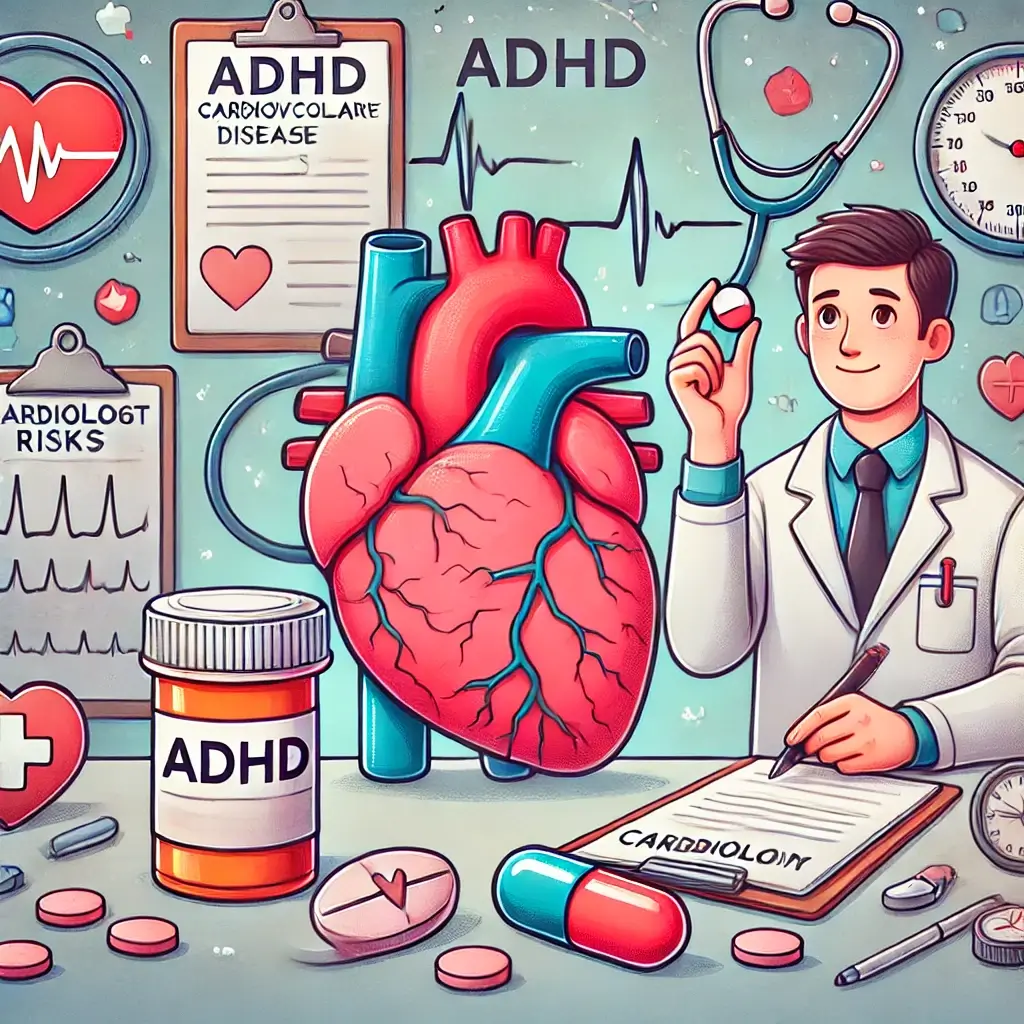
Impact of ADHD and treatment of ADHD on Cardiovascular system (CVD)
By: Dr. Hossein Rostamipour MD MRCPsych.
Adults with ADHD are at a higher risk of developing CVD compared to those without the condition. Factors such as stress, anxiety, mood disorders, chaotic eating habits, excessive alcohol consumption, and drug use can exacerbate cardiovascular risks in individuals with untreated ADHD.
Research suggests that treating ADHD symptoms can improve overall cardiovascular health. According to recent research which was done on children and young adult showed that there are no increased risk of Cardiovascular problem in people who use stimulant ADHD medication if they don’t have any underlying cardiovascular problem. However, individuals on long-term stimulant medication should undergo regular cardiovascular monitoring to mitigate potential risks.
While ADHD medications can be life-changing, prolonged exposure to stimulants may increase the risk of arrhythmia, particularly during the early stages of treatment. There is also a heightened risk of complications such as stroke and cardiomyopathy.
To minimize the risk of CVD, it is essential to carefully weigh the potential risks and benefits of long-term ADHD medication use. Family history of CVD should be thoroughly considered. Psychiatrists responsible for medication titration should aim to minimize a patient’s exposure to stimulants wherever possible to reduce potential risks.
Individuals taking ADHD medication long-term should regularly monitor their weight, blood pressure, and heart rate at home. They should also assess cardiovascular risk factors, adopt healthy lifestyle modifications, and consult their doctor regularly. Ideally, patients should be seen by a cardiologist to ensure the safety and efficacy of their long-term treatment plan.
Cardiology Clinic at Eton Psychiatrists

Our experts are committed to providing the highest quality and safest treatment to our clients. We want them to feel reassured that they have access to the best care available. We are pleased to announce that our clients will now have access to an ADHD-specialist cardiology clinic.
We have partnered with Dr. Sam Firoozi, a consultant cardiologist, to provide online follow-ups and in-person consultations.
Dr. Firoozi graduated from Guy’s & St Thomas’ Hospitals Medical School in 1995 with multiple distinctions. His postgraduate medical and cardiology training included positions at prestigious institutions such as Hammersmith, Royal Brompton, Guy’s, St Thomas’, and St George’s Hospitals. He was later awarded a British Heart Foundation research fellowship and conducted clinical research at St George’s Medical School. He then completed his higher specialist training in general and interventional cardiology at St George’s Hospital.
Since 2009, Dr. Firoozi has been a consultant cardiologist at St George’s Hospital, where he has established a high-volume general and interventional cardiology practice. He has developed a focused interest in complex coronary interventions, intracoronary imaging, and physiology.
Dr. Firoozi is also actively involved in postgraduate and undergraduate medical education, running medical education courses and organizing cardiology and angioplasty training in the London area.
Professional Memberships and Affiliations:
- Member: British Cardiovascular Society
- Member: British Cardiac Interventional Society
- Fellow: Royal College of Physicians (London)
- Member: British Medical Association
- Member: Medical Protection Society



